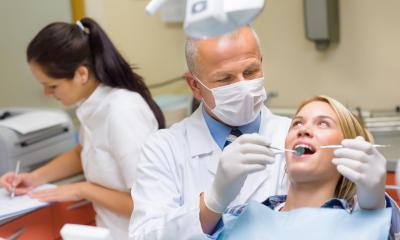
(last updated July 2019)
What has been happening in the dental profession
(Addendum, January 2021: See Evidence to the Review Body on Doctors’ and Dentists’ Remuneration for 2021-22 by the British Dental Association for a 36-page analysis of the current state of the UK dental market.)
The dental profession has for many years maintained that the fees for NHS dental work are inadequate and also that the way the NHS remuneration system works does not encourage preventive dental care. Many dentists feel that NHS fees do not allow them to spend enough time with each patient, use the best quality dental materials, or provide the treatment that the patient wants. As a result, the last few years have seen an increasing number of dentists moving away from the NHS and offering private treatment to patients, for example under a capitation scheme (whereby patients spread the cost of their dental treatment by way of a regular fixed fee, rather than making payment in full each time they visit your practice). In some areas it is very hard to find a dental practice willing to treat patients on the NHS. In February 2019 the British Dental Association (BDA) warned that over 1 million new patients have tried and failed to get access to an NHS dentist.
A revised contract for dentists in England and Wales was implemented back in April 2006. The revised arrangements replaced the previous remuneration system - where dentists were paid per item of service - with 12 equal monthly instalments of fees each year. In return, the practice contracts to undertake an agreed number of Units of Dental Activity (UDA). Each UDA has a financial value. A revised system of patient charges was also introduced. However, the revised contract was not well received by the dental profession and did not increase access to NHS dental services.
The changes stem from an independent review of the NHS dental service commissioned by the government. The Steele Review, published back in June 2009, proposed a new approach based on capitation payments. Prototype contracts are being trialled in advance of a new contract being rolled out in England in the future - but the trials don't end until 2020. Similar pilots are currently running in Wales.
In Scotland and Northern Ireland, dentists are still remunerated on the item of service basis, together with continuing care payments and various grants and allowances. The remuneration system has changed in Scotland as a result of the Scottish Government's Action Plan. A new dental contract is being negotiated in Northern Ireland and pilots to test a new capitation-based remuneration model have been launched.
During the early part of 2013 the General Dental Council (GDC) decided to allow patients to have direct access to registered dental care professionals like dental hygienists without having to be seen by the dentist first. This can help to free up the dentist's time to carry out dental treatments that other members of the dental team are not qualified to do.
Keeping up to date with developments
Joining a professional association is an excellent way of staying up to date with developments.
The dental profession in the UK is represented by the British Dental Association (BDA).
Dentists practising in the UK must be registered with the General Dental Council (GDC) which produces Standards for the Dental Team. Contact the GDC for guidance on regulatory matters, including details of the requirement to complete 100 hours of verifiable continuing professional development (CPD) over a five-year cycle.
The Dental Guide website contains news and links of interest to the dental profession. GDPUK has an online forum for members of the dental team.
Information about remuneration arrangements
The Department of Health website includes information about the NHS contract arrangements for dentists in England.
Details of remuneration arrangements for dentists in England and Wales are available on the NHS Business Services Authority (NHS BSA) website.
The Information Services Division (ISD) of NHS National Services Scotland website contains details of fees paid to NHS dentists in Scotland.
The HSC Business Services Organisation website contains details of General Dental Services in Northern Ireland.


